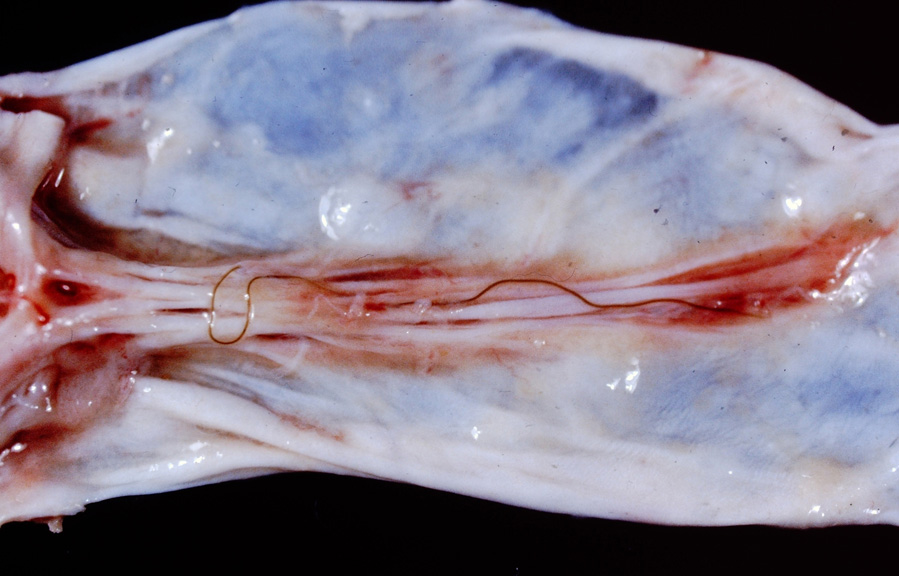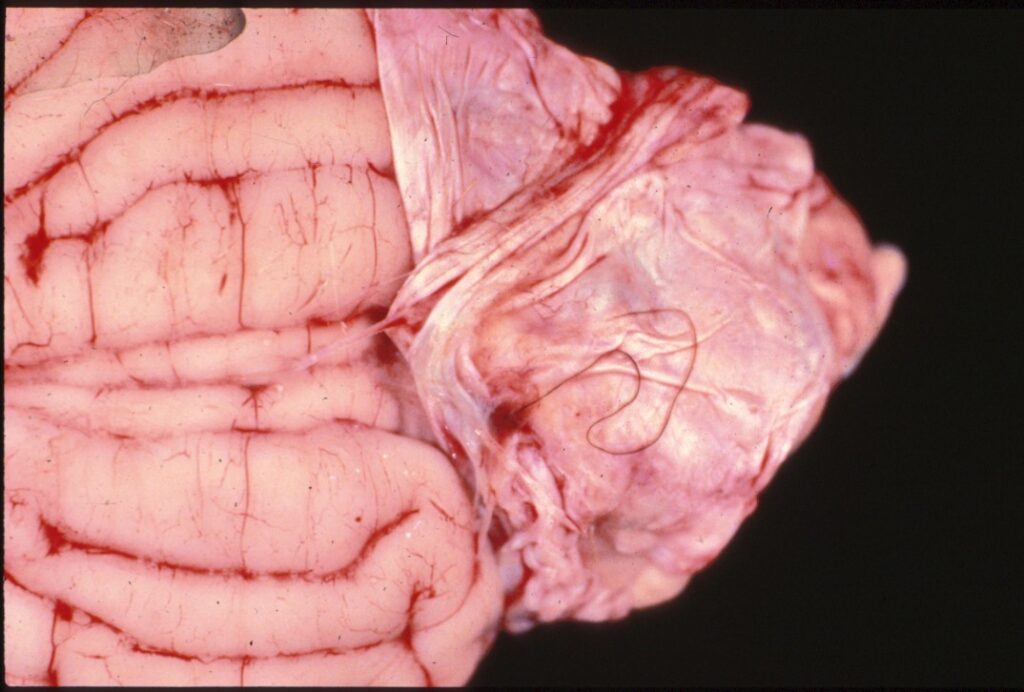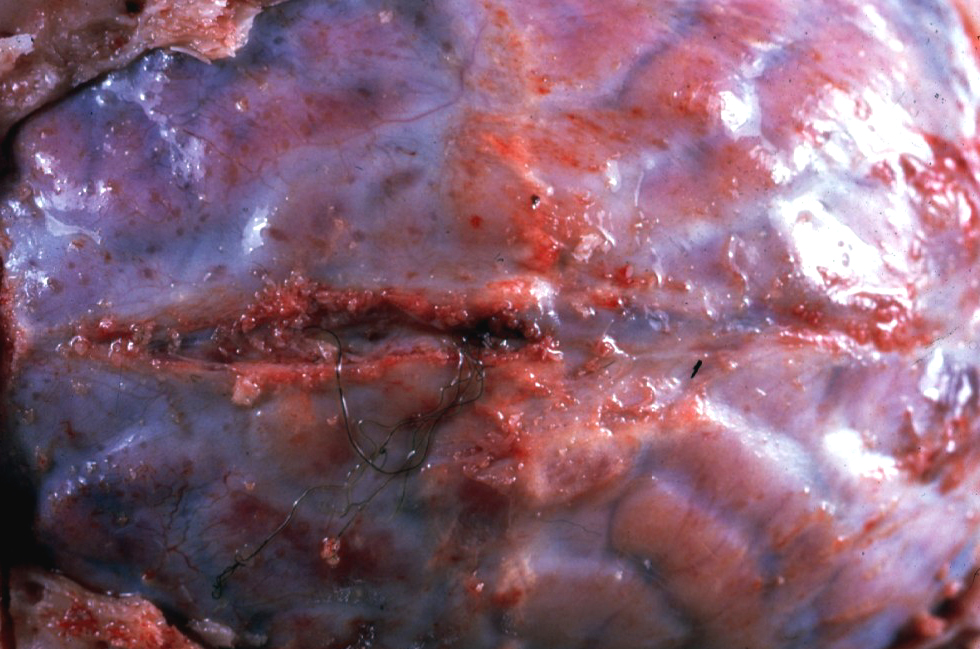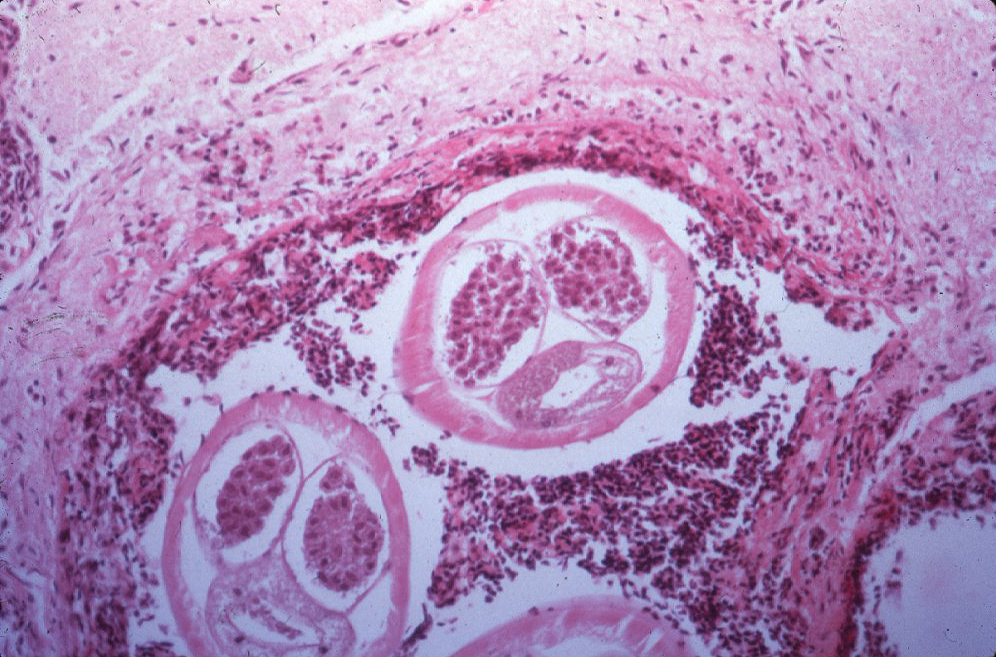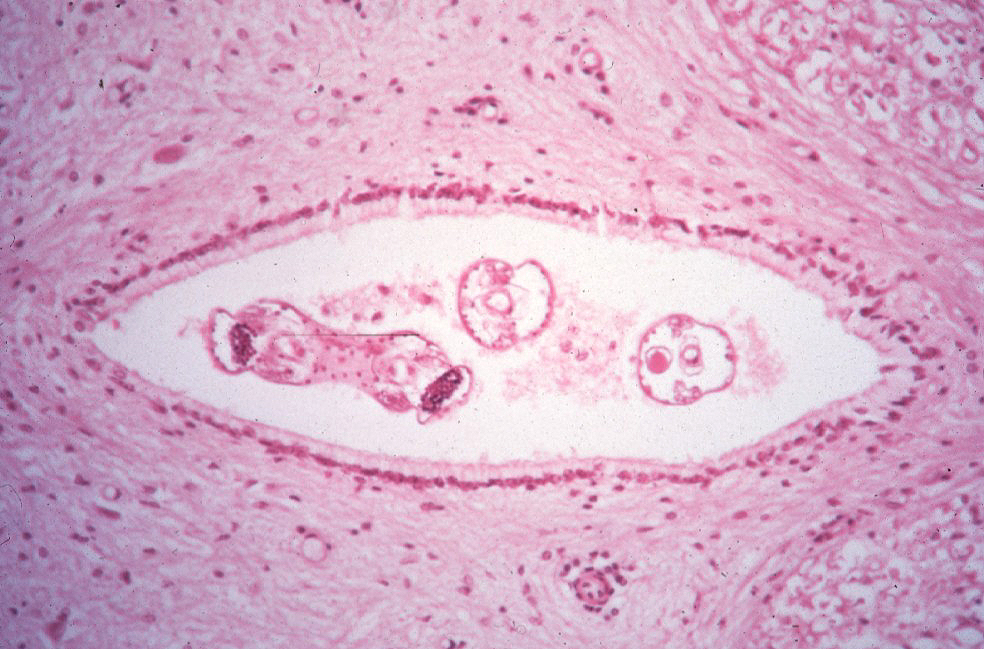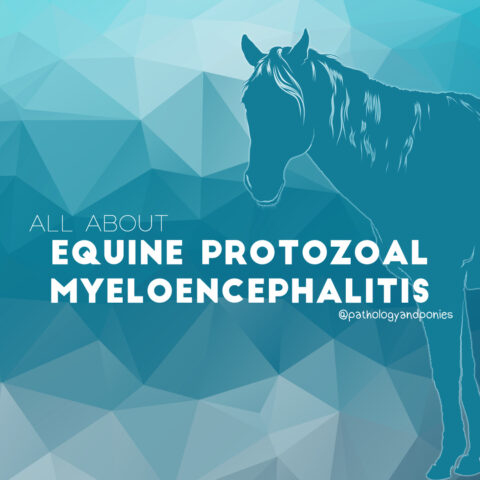Today’s path rounds are on 𝐏𝐚𝐫𝐞𝐥𝐚𝐩𝐡𝐨𝐬𝐭𝐫𝐨𝐧𝐠𝐲𝐥𝐮𝐬 𝐭𝐞𝐧𝐮𝐢𝐬, otherwise known as the meningeal worm!
𝐖𝐡𝐚𝐭 𝐢𝐬 𝐢𝐭?
𝐏𝐚𝐫𝐞𝐥𝐚𝐩𝐡𝐨𝐬𝐭𝐫𝐨𝐧𝐠𝐲𝐥𝐮𝐬 𝐭𝐞𝐧𝐮𝐢𝐬 is a parasite that primarily affects deer, but can accidentally infect other species as well. It is primarily known for invading into the 𝐦𝐞𝐧𝐢𝐧𝐠𝐞𝐬, the connective tissue protecting the brain.
𝐖𝐡𝐨 𝐠𝐞𝐭𝐬 𝐢𝐭?
The primary species that this parasite infects are white-tailed deer. However, it does not cause very many signs in this species. If the worm accidentally makes it into a red deer, elk, moose, sheep, alpaca or llama however, it can have very significant effects!
𝐇𝐨𝐰 𝐝𝐨 𝐚𝐧𝐢𝐦𝐚𝐥𝐬 𝐠𝐞𝐭 𝐢𝐧𝐟𝐞𝐜𝐭𝐞𝐝?
Affected species that show clinical signs are 𝐚𝐛𝐞𝐫𝐫𝐚𝐧𝐭 𝐡𝐨𝐬𝐭𝐬, or animals that were not supposed to get the worm in the first place. P. tenuis eggs are shed in the feces of infected deer and develop into larvae, where they are picked up by an 𝐢𝐧𝐭𝐞𝐫𝐦𝐞𝐝𝐢𝐚𝐭𝐞 𝐡𝐨𝐬𝐭, like a snail or slug. In the intermediate host, the larvae develop further and become infectious to mammals, and are excreted in the snail or slug’s mucus trail. The larvae are ingested by the aberrant host where it migrates from the stomach to the spinal cord, and eventually to the brain.
𝐖𝐡𝐲 𝐢𝐬 𝐭𝐡𝐢𝐬 𝐚 𝐩𝐫𝐨𝐛𝐥𝐞𝐦?
The brain and spinal cord isn’t supposed to have worms around it! The larvae cause damage to the nervous tissue as the migrate, which leads to clinical signs. In 𝐜𝐚𝐦𝐞𝐥𝐢𝐝𝐬 (the species family of llamas and alpacas), you may see lameness, incoordination, weakness, head tilt, blindness and circling.
𝐇𝐨𝐰 𝐢𝐬 𝐢𝐭 𝐝𝐢𝐚𝐠𝐧𝐨𝐬𝐞𝐝?
Unfortunately, there are no 𝐚𝐧𝐭𝐞𝐦𝐨𝐫𝐭𝐞𝐦 (before death) tests available to identify this worm. So typically, a diagnosis is based on the clinical signs, as well as a history of exposure to deer.
𝐇𝐨𝐰 𝐢𝐬 𝐢𝐭 𝐭𝐫𝐞𝐚𝐭𝐞𝐝?
Suspect cases are treated with anti-inflammatory drugs to try and reduce damage caused by the worms, and anti-parasitic medication to hopefully kill the worms directly. Unfortunately, the prognosis is quite poor, so animals are often euthanized if they do not respond to treatment.
𝐇𝐨𝐰 𝐜𝐚𝐧 𝐢𝐭 𝐛𝐞 𝐩𝐫𝐞𝐯𝐞𝐧𝐭𝐞𝐝?
Prevention is key for this disease, and is focused around preventing exposure to snails and slugs. Animals should be kept away from swampy areas, streams and ponds, and should have gravel paths on frequently travelled areas to reduce mud. Deer-proof fencing to prevent deer from entering the livestock areas can also help.
𝐏𝐡𝐨𝐭𝐨𝐬
1) The life cycle of Parelaphostrongylus tenuis.
2-5) Examples of meningeal worms as seen at necropsy.
6-7) Cross-sections of meningeal worms seen on histology!
𝐒𝐨𝐮𝐫𝐜𝐞𝐬
Maxie, G. Jubb, Kennedy and Palmer’s Pathology of Domestic Animals, Volume 1. Sixth Edition.
Purdy, S.R. Meningeal worms in camelids. CDLE Newsletter, Vol 14:1 Fall 2010.
Photo 1 courtesy of S.R. Purdy.
Photos 2-7 courtesy of Noah’s Arkive.



